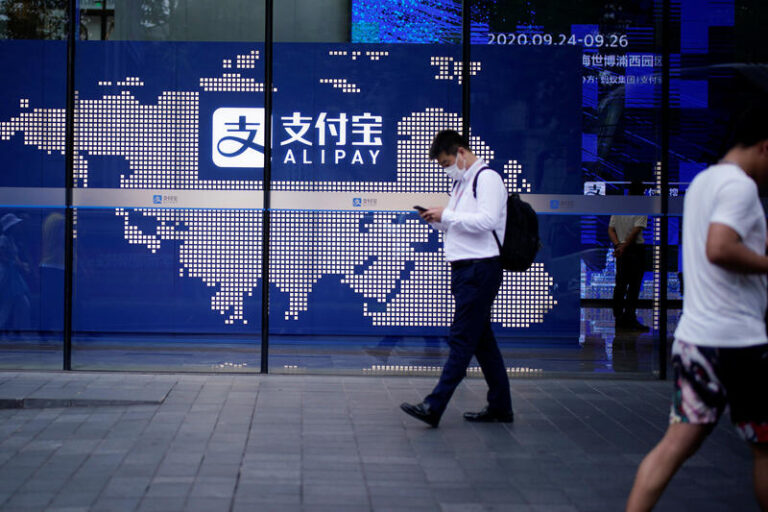
(Reuters) – Pegged currencies are irresistible to speculators, and the Hong Kong dollar’s 36-year-old fix is no different. Since political strife erupted in the territory last year, investors like Kyle Bass, founder of Dallas-based Hayman Capital Management, have been betting that capital flight will break a narrow band. But Ant Group’s $30 billion-plus float and other expected Chinese technology listings are drawing inflows, strengthening the currency and creating headaches for doomsayers.
Demand for Hong Kong dollars has triggered near-daily interventions from the Hong Kong Monetary Authority since Sept. 14. Brokers say interest in securing currency ahead of Ant’s expected October float has been a key driver. The city is used to seeing liquidity tighten ahead of big deals and this one boasts size and brings expectations that more will follow. Inflows could easily top $100 billion for the Hong Kong leg of the dual listing, which could see $17.5 billion of shares on offer in the city, according to sources cited by Reuters.
Speculators reckon Hong Kong’s standing as a financial centre will be damaged by Beijing’s hardening grip on the territory and by rising U.S.-China tensions. Officials in Washington in June even discussed undermining the peg, according to Bloomberg reports. Bears are also wary that any sharp sustained outflows from the city’s banking system, given its large size relative to the local economy, could easily overwhelm the HKMA’s defences.
But as U.S. sentiment has soured on the People’s Republic, inflows to Hong Kong have followed. A series of New York-listed Chinese companies have sold additional shares in the city, creating a funding alternative should Washington push ahead with threats to delist them. Secondary listings from Netease and JD.com in June attracted bids worth 10 times the combined $6.6 billion they raised. Ant’s IPO will only add to the city’s fresh pull.
The result is what ANZ analysts call a “headquarters effect” where stock-specific inflows into smaller economies warp traditional measures of currency strength such as current account balances and reserves. South Korea and Taiwan, home to Samsung and TSMC, are two such examples. Hong Kong has the makings of another. Either way, the current run of Ant-related inflows may well last long enough to frustrate the bears.






